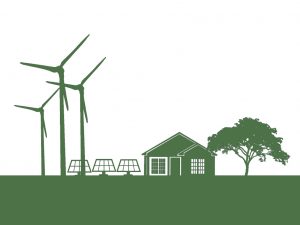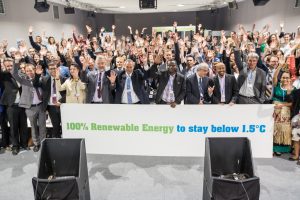Countries that have made the most of the renewable energy revolution are those with robust command centres for distributed renewable energy (DRE).
Having passed a new mini grid regulation, it should be a no-brainer to Nigerian authorities that the country would need more than just the regulation but also a single command centre to harvest the gains that could come from the intents of the regulation.
At the moment, it is not quite clear who is really in charge of specific tasks that could make it easier for investors to put and recoup their monies in the country’s DRE market.
Very often, you will hear investors complain about the uncertainties of investing in the sector, and this is simply down to the fact that there is no single command centre to take charge of the sector’s transition and nurture its growth.
Unlike in the UK, where the Department of Energy and Climate Change (DECC) which is ensconced in the Department for Business, Energy, and Industrial Strategy, works to make sure the UK has secure; clean; and affordable energy supplies, Nigeria is yet to set up a single command centre for her DRE market.
Similarly in India, there is the Ministry of New and Renewable Energy (MNRE) specifically dedicated as a one-stop command centre to secure India’s energy needs; increase the share of clean power; increase energy availability and access; as well as affordability; in addition to maximising energy equity.
While the UK and India, have shown a constantly firm and keen commitment to the renewable energy revolution sweeping through the globe, Nigeria appears quite unruffled about the competitive drive that is defining the global DRE market.
Recent findings from the World Bank’s 2016 RISE report provided clear-cut evidence on why Nigeria is falling behind the likes of Kenya; South Africa; and other east African countries in the continent’s DRE market growth.
In the report, the World Bank specifically pointed to the absence of a cohesive renewable energy policy making and monitoring agency as one of the reasons it rated Nigeria low and didn’t consider her a serious renewable energy investment destination.
It also said countries who have shown greater commitment to deploying renewable energy and making it work for their domestic economies, have gone ahead to create market enabling processes and environment to encourage and sustain investors’ appetite.
Listing these processes, the Bank said: “Sub-Saharan Africa – the least electrified continent and home to about 600 million people without electricity, has one of the least developed policy environments to support energy access.
“Of particular concern are Ethiopia, Nigeria, and Sudan – three of the most populous energy deficit countries, with a total unserved population of 116 million people. And as many as 70 per cent of Africa’s least electrified nations, each with access rates below 20 per cent of the population, have barely begun to establish an enabling environment for energy access.”
It also explained that by neglecting enabling policies for stand-alone solar home systems, too many countries including Nigeria are missing out on the solar revolution’s access dividend.
According to it: “Nigeria – Sub-Saharan Africa’s largest economy, is in the red zone in six of the eight indicators – energy access score; existence and monitoring of officially approved electrification plan; scope of officially approved electrification plan; framework for grid electrification; framework for stand-alone systems; and utility transparency and monitoring; utility creditworthiness.”
The Bank also noted that without a fairly robust mechanisms for information disclosure, auditing, and reliability monitoring, it would be quite difficult for Nigeria to make the most of the current DRE revolution.
However, we are fully aware Nigeria has made well-articulated paper commitments to robustly grow its energy mix and have up to 30 per cent of energy used by her citizens come from renewable energy sources, but has also failed to put her foot down on how best to achieve this.
As at today, there are quite a number of commendable policies – the National Renewable Energy Action Plan (NREAP); an energy efficiency policy; the mini grid regulations; the Paris Agreement; and a host of others made by the country to promote DRE or clean energy, but no one command centre to holistically drive them to fruition.
At best, what the country has is the Nigerian Electricity Regulatory Commission (NERC) responsible for regulation of the country’s overall power sector; there is the Energy Commission of Nigeria (ECN), said to be an energy policy making/advisory agency of the government; there is the renewable energy department in the ministry of power populated by very knowledgeable persons on the subject matter; there is the ministry of environment taking charge of the climate change and Paris agreement protocols; and of course, some quasi team resident in the presidency and also claiming to be all about renewable energy development.
While some of these groups from findings have rather operated at cross purposes, and turned out not very much of results, we are of the view that it has become crucial to close down and streamline their operations into a single command centres for an accelerated renewable energy development in Nigeria, just like UK and India.





